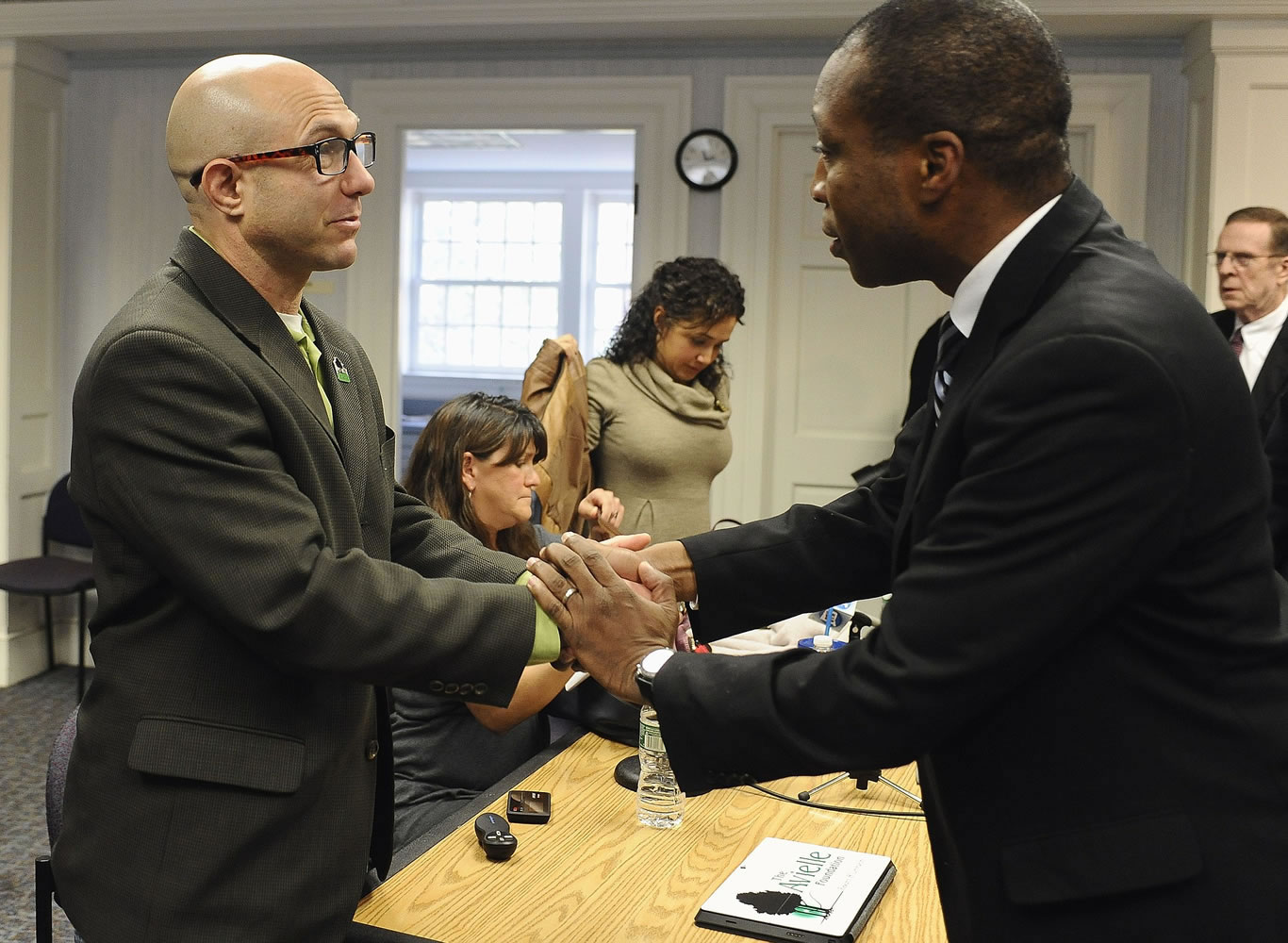NEWTOWN, Conn. — In short home videos projected on a screen, the children danced.
Ana Grace Marquez-Greene. Avielle Richman.
It was during that innocent time before — before Ana, Avielle and 18 other first-graders and six educators were gunned down at Sandy Hook Elementary School 23 months ago.
The home videos beamed over the heads of members of the Sandy Hook Advisory Commission. Meeting at Newtown’s Booth Library on Friday morning, the panel heard testimony from the girls’ parents to include in a report on the 2012 tragedy and its aftermath.
“We ask, instead of bowing your heads, to look at our children,” Ana’s mother, Nelba Marquez-Greene, told the commission at the emotional hearing.
Next to Marquez-Greene, a family therapist with trauma training, were Avielle’s parents, neuro-scientists Jeremy Richman and Jennifer Hensel.
They spoke to the panel about the well-meaning but confused initial response to the families of the murdered children at the scene; about how fundraisers and memorials held without the families’ consent can be more hurtful than helpful; about the remaining murkiness, almost two years later, regarding where all the grant funding and other sources of money have gone; and about precisely what therapy, support and help is actually available to the families.
One by one, the three parents described how they only learned recently that case workers had been assigned to their families from the start.
They reported working with some counselors in the early months, but said those workers were often unprepared for the emotional intensity — and quit.
The families asked for the establishment of protocols during mass tragedies that funnel information rapidly to the families of victims, that expose the families only to those clergy and counselors qualified to be on the scene, and protect the families from unwanted media scrutiny.
Marquez-Greene said she learned Ana was dead not from a police officer but from the silent, agonized expression on a case worker’s face when she asked about her child.
It was obvious, the parents all testified, that others knew the fate of the children well before the parents did.
The parents also testified about the need for family input into all major decisions about memorials, fund-raising, recovery initiatives and long-term family support.
“No one should speak for us,” said Richman.
The Sandy Hook panel, charged with recommending reforms in school security, mental health and disaster response, will work the families’ suggestions into the report they plan to release after the two-year anniversary, said panel Chairman Scott Jackson.
Hensel said that in the next mass tragedy, from the immediate aftermath to years in the future, there needs to be highly trained, ethical and proactive counselors who make and maintain personal contact with the families of the victims. Each parent said that has been lacking here.
She said the police need to set boundaries for the media and inform the families of those lines, so parents don’t unwittingly “walk into the middle of a media frenzy,” said Hensel.



